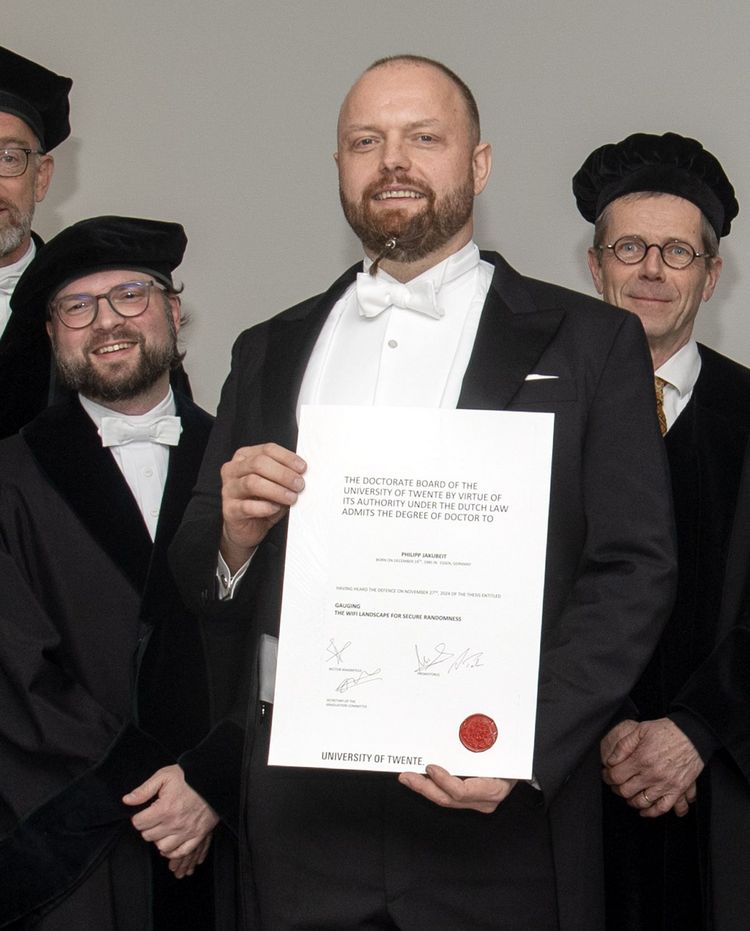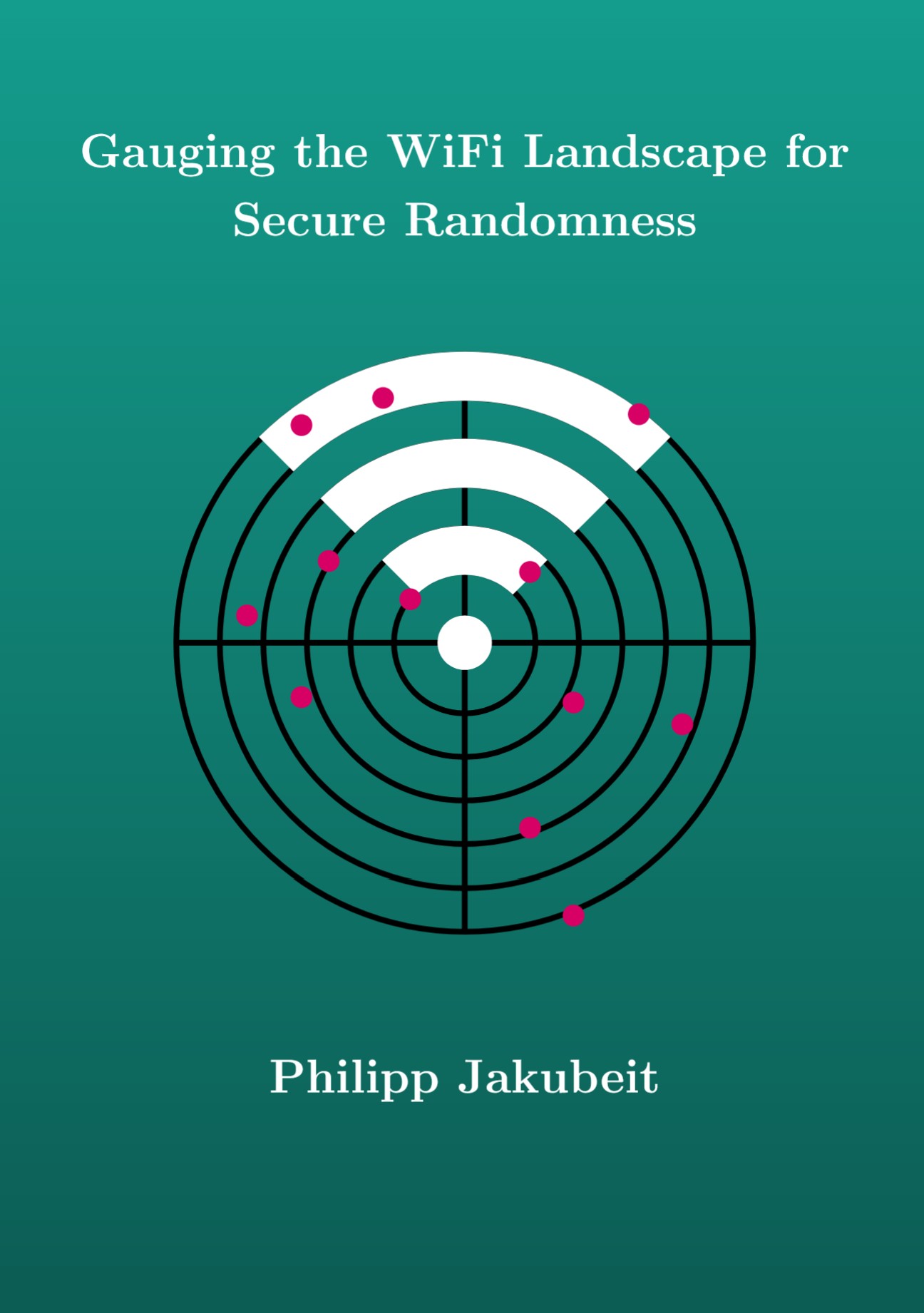On 27 November 2024, Philipp Jakubeit successfully defended his PhD thesis with the title „Gauging the WiFi Landscape for Secure Randomness”.
The supervisors of the thesis were Prof. Dr. Maarten van Steen (University of Twente, The Netherlands) and Prof. Dr. Andreas Peter (Carl von Ossietzky Universität Oldenburg, Germany).
Moreover, the following committee members were involved in the assessment of the thesis:
- Prof. Dr. Boudewijn Haverkort, University of Twente, The Netherlands (chair of committee)
- Prof. Dr. Geert Heijenk, University of Twente, The Netherlands
- Prof. Dr. Ana Lucia Varbanescu, University of Twente, The Netherlands
- Prof. Dr. Wouter Joosen, KU Leuven, Belgium
- Prof. Dr. Nirvana Meratnia, TU Eindhoven, The Netherlands
Here’s a short summary of the PhD thesis:
Validating claimed characteristics (authentication) plays a vital role in digital communication. As most digital communication is remote, communicating entities cannot be assured of the opponent’s identity a priori. Further, not only humans, but programs need to validate each others’ claims. From classical authentication factors: knowledge, possession, inherence, and location, we focus on location combined with possession and inherence aspects. We start by the observation that location is not required to be ‘localizing’. Localization is a prerequisite only in systems that seek to contextualize a location. In contrast, localization has a privacy cost (e.g., tracking). Hence, the key question becomes, ‘Has the entity logged in from this location before?’. We investigate how to describe a location by non-localizing information in terms of WiFi signals and their compositions.
We focused on two main concepts:
- fingerprinting a location in terms of WiFi signals, and
- deriving a location specific key from WiFi signals.
Fingerprinting a location allows for strengthening the characteristics an entity can claim by extending the set of options with non-localizing location claims. Deriving a location-specific key provides a method of extracting a volatile key from WiFi measurements. We evaluate the proposed methods across various locations and for various durations. Our experiments and evaluations confirm the feasibility and effectiveness of extracting randomness from WiFi signals for the security applications of authentication and key derivation.
Link to PhD thesis:



